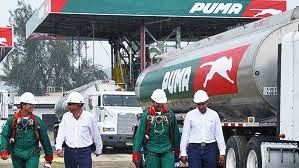Puma Energy completes acquisition in Vietnam
 The new company will be called Puma Energy Bitumen Vietnam and within three months the company’s assets will be rebranded Puma Energy.
The new company will be called Puma Energy Bitumen Vietnam and within three months the company’s assets will be rebranded Puma Energy.
According to Pierre Eladari, Puma Energy's chief executive officer, Puma Energy was quickly becoming a global marketer of bitumen.
“Our investment in logistics operations and in our bitumen terminals in Spain, Africa, Central America and now Vietnam will help us to deliver ambitious growth in sales volumes,” Eladari said.
Puma Energy Bitumen Vietnam imports, stores and distributes asphalt for road building and infrastructure developments in Vietnam.
The company's assets include a Haiphong terminal which has wharf facilities with a state-of-the-art bitumen storage terminal with a capacity of 5,000 metric tons and the management of a bitumen distribution business around Hanoi and Ho Chi Minh City. The 35 members of staff have transitioned to the new business.
Puma Energy is a global integrated midstream and downstream oil company active in over 30 countries.
Formed in 1997 in Central America, Puma Energy has since expanded its activities worldwide, achieving rapid growth, diversification and product line development.
The group directly manages over 4,000 employees and has regional hubs in Singapore, Johannesburg (South Africa), San Juan (Puerto Rico) and Geneva (Switzerland).
Puma Energy’s core activities in the midstream sector include the supply, storage and transportation of petroleum products.
Puma Energy’s activities are underpinned by investment in infrastructure which optimises supply chain systems, capturing value as both asset owner and marketer of product.
Puma Energy’s downstream activities include the distribution, retail sales and wholesale of the full range of refined products, with additional product offerings in the lubricants, bitumen, LPG and marine bunkering sectors.
Puma currently has a global network of over 1,300 retail service stations. Puma Energy also provides a robust platform for independent entrepreneurs to develop their businesses, by providing a viable alternative to traditional market supply sources.
What the stars mean:
★ Poor ★ ★ Promising ★★★ Good ★★★★ Very good ★★★★★ Exceptional
Related Contents
Latest News
More News
- State corporations poised to drive 2026 growth (February 03, 2026 | 13:58)
- Why high-tech talent will define Vietnam’s growth (February 02, 2026 | 10:47)
- FMCG resilience amid varying storms (February 02, 2026 | 10:00)
- Customs reforms strengthen business confidence, support trade growth (February 01, 2026 | 08:20)
- Vietnam and US to launch sixth trade negotiation round (January 30, 2026 | 15:19)
- Digital publishing emerges as key growth driver in Vietnam (January 30, 2026 | 10:59)
- EVN signs key contract for Tri An hydropower expansion (January 30, 2026 | 10:57)
- Vietnam to lead trade growth in ASEAN (January 29, 2026 | 15:08)
- Carlsberg Vietnam delivers Lunar New Year support in central region (January 28, 2026 | 17:19)
- TikTok penalised $35,000 in Vietnam for consumer protection violations (January 28, 2026 | 17:15)

 Tag:
Tag:




















 Mobile Version
Mobile Version